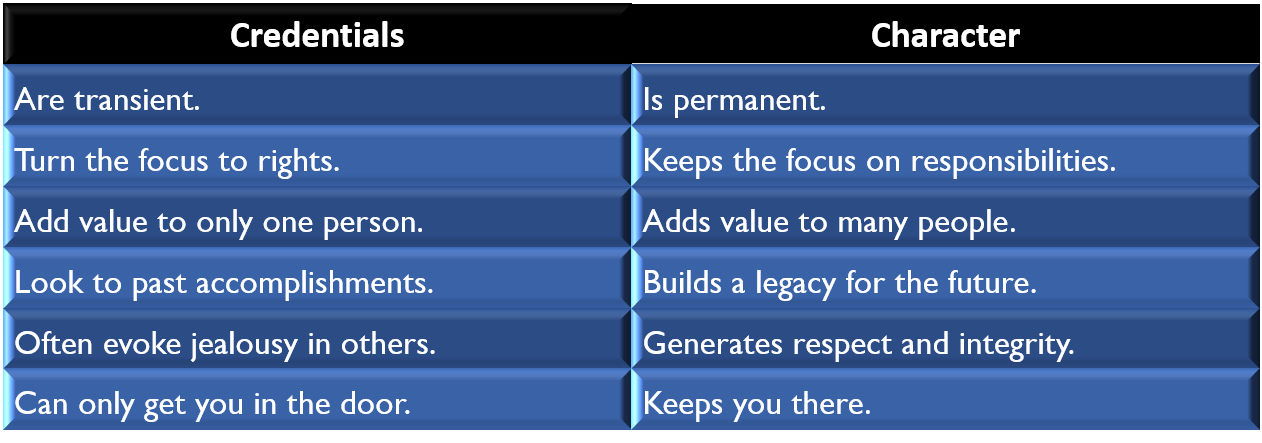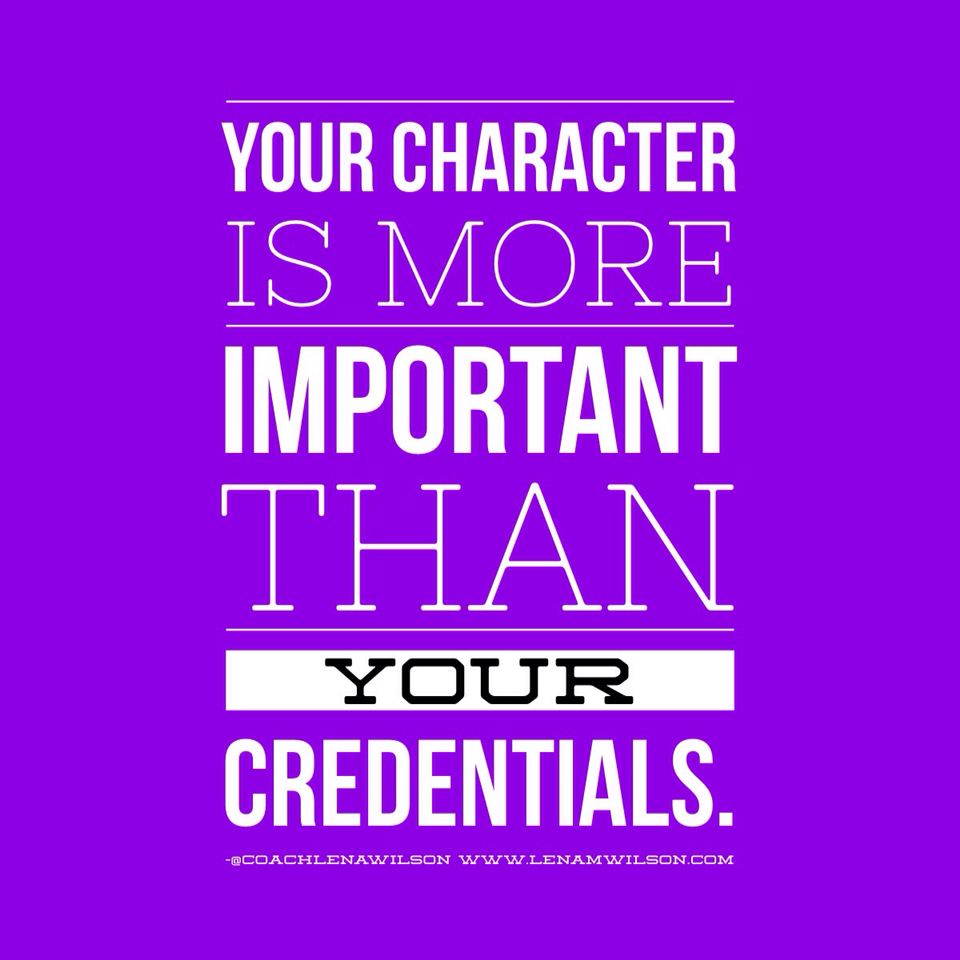One of the reasons many people struggle with integrity issues is that they tend to look outside themselves to explain any deficiencies in character. But the development of integrity is an inside job. Look at the following three truths about integrity that go against common thinking.
Integrity Is Not Determined by Circumstances
Some psychologists and sociologists today tell us that many people of poor character would not be the way they are if only they had grown up in a different environment. Now, it is true that our upbringing and circumstances affect who we are, especially when we are young. But the older we are, the greater the number of choices we make – for good or bad. Two people can grow up in the same environment, even in the same household and one will have integrity and the other won’t. Ultimately, you are responsible for your choices. Your circumstances are as responsible for your character as a mirror is for your looks. What you see only reflects what you are.
Integrity Is Not Based on Credentials
In ancient times, brick makes, engravers and other artisans use a symbol to mark the things they created to show that they were makers. The symbol that each one used was his “character”. The value of the work was in proportion to the skill with which the object was made. Only if the quality of the work was high was the character esteemed. In other words, the quality of the person and his work gave value to his credentials. If the work was good, so was the character. If it was bad, then the character was viewed as poor.
The same is true for us today. Character comes from who we are, but some people would like to be judged not by who they are, but by the titles they have earned or the position they hold, regardless of the nature of their character.
Their desire is to influence one another by the weight of their credentials rather than the strength of their character. Credentials can never accomplish what character can. Look at some differences between the two:

No number of titles, degrees, offices, designations, awards, licenses or other credentials can substitute for basic, honest integrity when it comes to the power of influencing others.

Integrity Is Not to Be Confused with Reputation
Some people mistakenly emphasise image or reputation. Listen to what William Hersey Davis has to say about the difference between character, and its shadow, reputation:
- The circumstances amid which you live determine your reputation…
- The truth you believe determines your character…
- Reputation is what you are supposed to be, the character is what you are…
- Reputation is the photograph, the character is the face…
- Reputation comes over one from the outside; character grows up from within…
- Reputation is what you have when you come to a new community; character is what you have when you go away…
- Your reputation is made in a moment, your character is built in a lifetime…
- Your reputation is learned in an hour, your character does not come to light for a year…
- Reputation grows like a mushroom, character lasts like eternity…
- Reputation makes you rich or makes you poor, the character makes you happy or makes you miserable…
- Reputation is what men say about you on your tombstone, character is what the angels say about you before the throne of God.
Certainly, a good reputation is valuable. A good reputation exists because it reflects a person’s character. If a good reputation is like gold, then having integrity is like owning the mine. If you struggle with maintaining your integrity and you are doing all the right things on the outside – but you are still getting the wrong results – something is wrong and still needs to be changed on the inside. The following questions will help you nail down areas that need attention.
Guidelines for Behaviour with Integrity
The bottom line when it comes to integrity is that it allows others to trust you. Without trust, you have nothing. Trust is the single most important factor in personal and professional relationships. It is the glue that holds people together. And it is the key to becoming a person of influence.
Today, people are desperate for leaders, but they want to be influenced only by individuals they can trust; persons of good character. If you want to become someone who can positively influence other people, you need to develop the following qualities of integrity and live them out every day:
Model Consistency of Character: Solid trust can develop only when people can trust you all the time. If they never know from moment to moment what you are going to do, the relationship will never deepen to a confident level of trust.
Employ Honest Communication: To be trustworthy, you must be like a good musical composition, your words and music must match.
Value Transparency: People eventually find out about your flaws, even if you try to hide them. But if you’re honest with people and admit your weaknesses, they will appreciate your honesty and integrity. And they will be able to relate better to you.
Exemplify Humility: People will not trust you if they see that you are driven by ego, jealousy or the belief that you are better than they are.
Demonstrate Your Support to Others: Nothing develops or displays your character better than your desire to put others first. As Zig Ziglar says, ‘help enough other people to succeed and you will succeed’.
Fulfil Your Promises: Never promise anything you can’t deliver. And, when you say you will do something, follow through on it. A sure way to break trust with others is to fail to fulfil your commitments.
Embrace an Attitude of Service: We have been put on this earth not to be served, but to serve. Giving of yourself and your time to others shows that you care about them. Missionary-physician Sir Wilfred T Grenfell held that “the service we render to others is really the rent we pay for our room on this earth”. People of integrity are givers, not takers.
Encourage Two-way Participation with The People You Influence: When you live a life of integrity, people listen to you and follow you. Always remember that the goal of influence is not manipulation, it's participation. Only as you include others in your life and success do you permanently succeed.
It has been said that you don’t really know people until you have observed them when they interact with a child, when the car has a fate tire, when the boss is away and when they think no one will ever know. People with integrity never have to worry about that. No matter where they are, who they are with or what kind of situation they find themselves in, they are consistent and live by their principles.